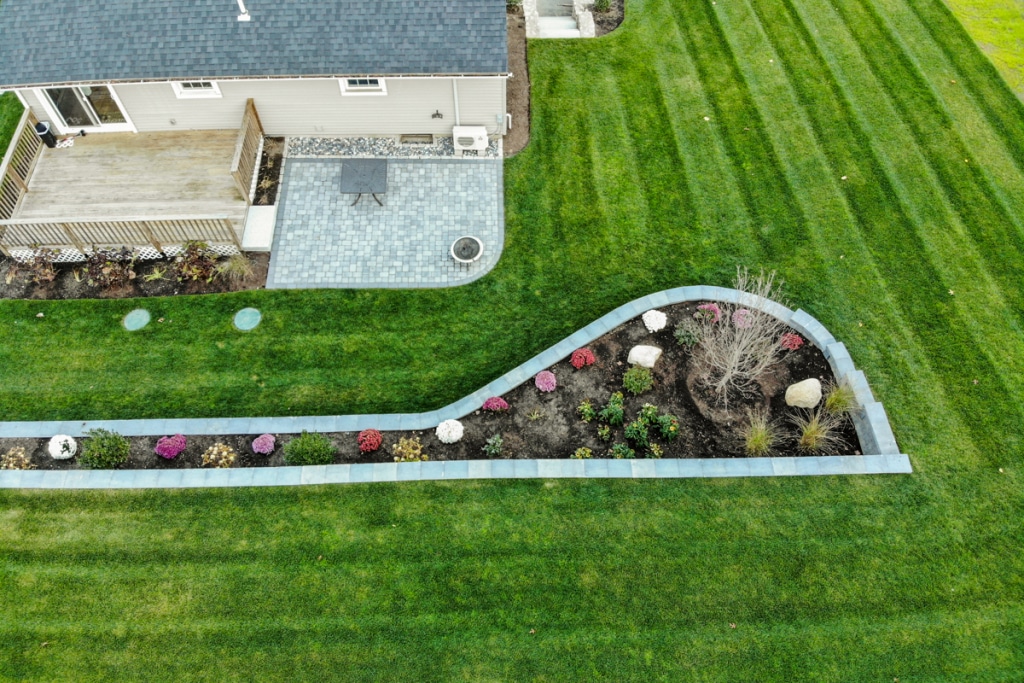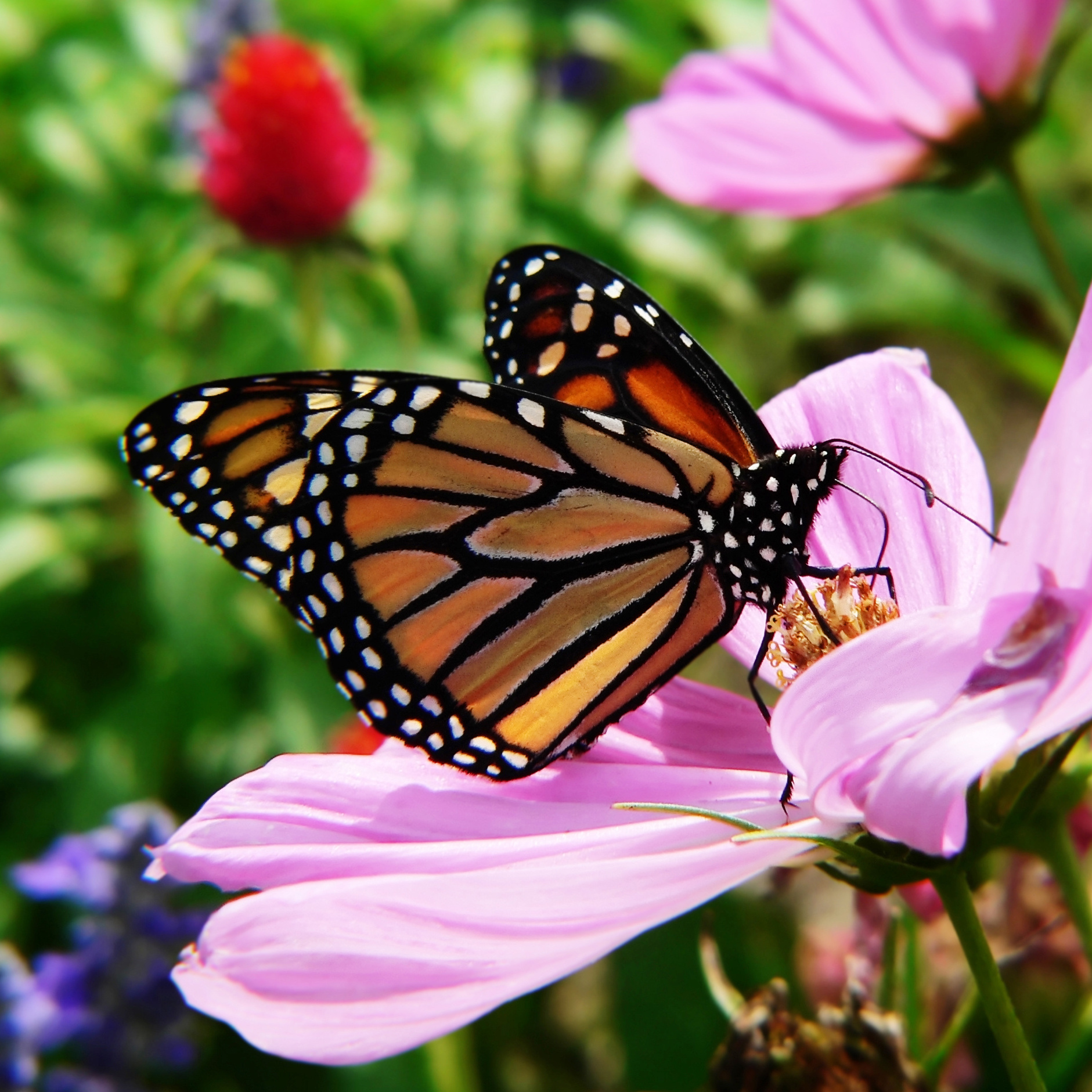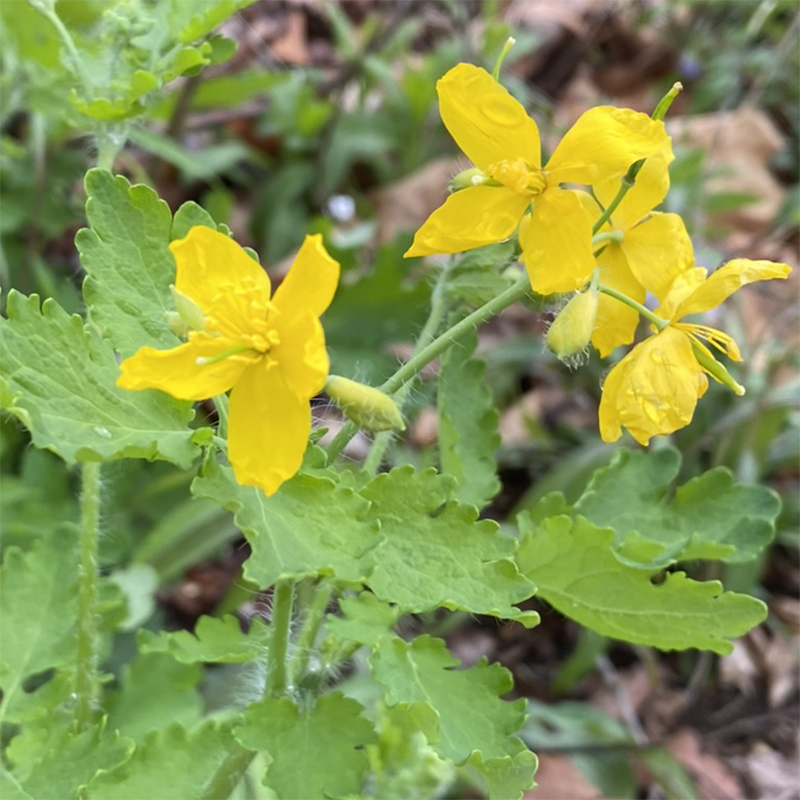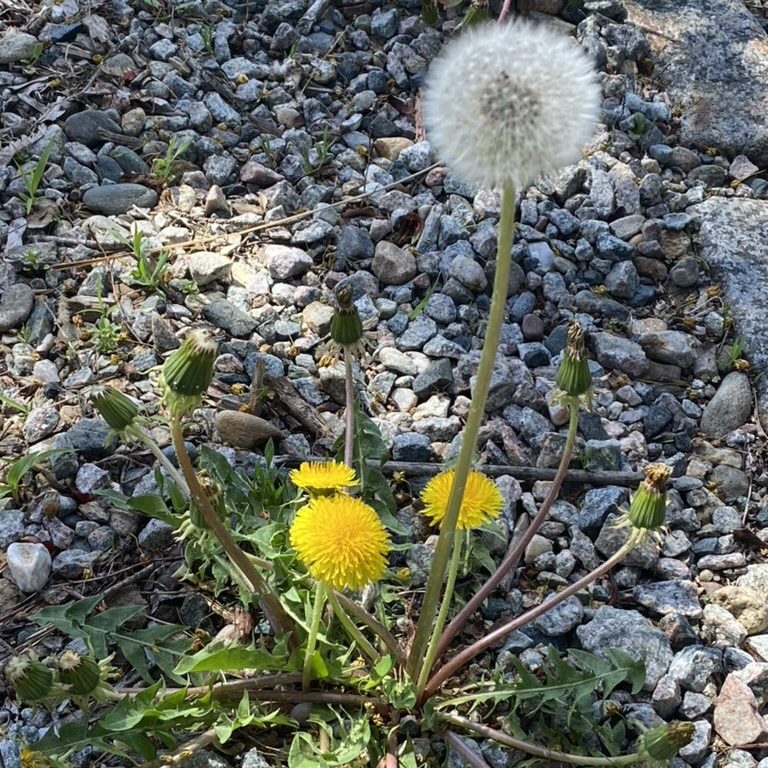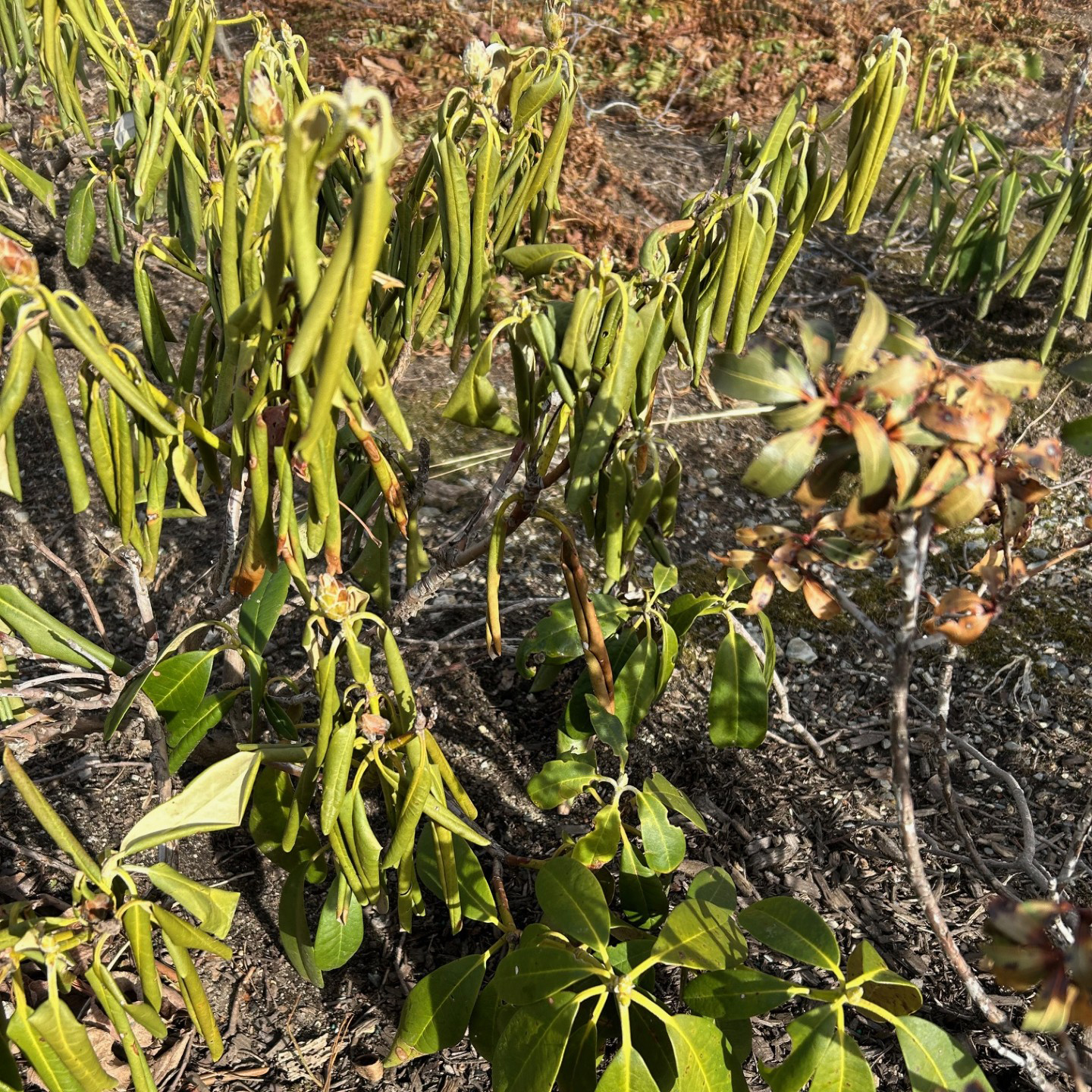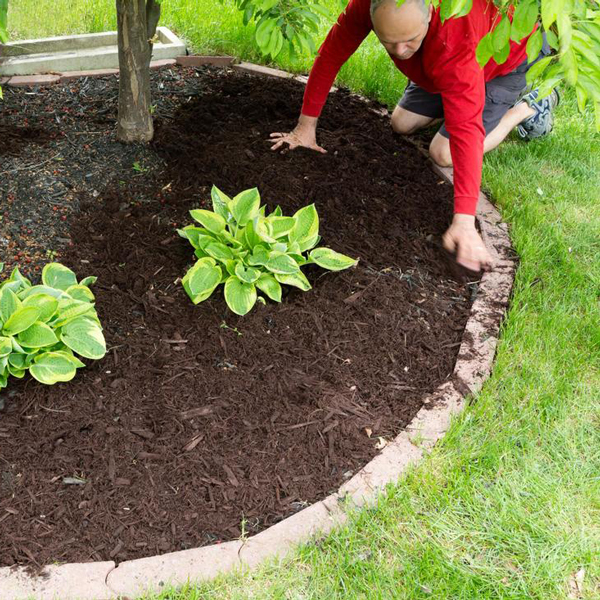
Imagine hanging a beautiful painting or portrait on your wall without a frame around it. Would it stand out or just be part of the wall? The frame refines the picture, bringing out all the colors and textures to the viewer’s eyes. Mulch does the same for your landscape plantings. Applying mulch around your plants also has many benefits besides the attractive color and smells.
Mulch is a security blanket for all plants. In the winter it will insulate the roots and provide adequate moisture during the summertime heat. Organic mulch will supply nutrients and condition the soil. Depending on the kind of mulch, you will minimize the amount of weeds that can develop in the garden.
Organic mulches will be more effective for the health of the plant over using synthetic mulches. Remember that all organic mulches will decompose some faster than others, so it will be necessary to replace it after a period of time.
Bark Mulch is the most common mulch available. Bark is shredded off of trees at a lumber mill and then it is grind up into finer size pieces and screened, which will be easier to work with in the landscape. Bark as it decomposes will change color and add nutrients back into the soil. Bark has a great smell and comes in various colors. The colors in most cases is natural, however some blends are enhanced.
When applying mulch be careful not to over apply. To keep the plants healthy a 2-3” depth is recommended and make sure the mulch is not touching the stem(s) of plants and the root flare is visible. If this practice is not observed the plants will become stressed, and possibly death. Many times I see in the landscape the “Volcanoes” around tree trunks. All this does is prevents oxygen from getting to the roots of the plants. Please remove the mulch down to the root flare for proper growth of the tree.
There are many other types of organic mulches such as Straw, Salt Marsh Hay, Cocoa Bean Hull, and Compost to name a few. These also can give you the same benefits as Bark Mulch. No matter what type of mulch you choose make sure you apply the mulch the same way.
Decorative Stone is also available and I have seen it used as mulch. Unlike the above mentioned mulches decorative stone doesn’t provide organic matter back into the soil and could be detrimental for plants. Stones will absorb solar radiation causing a hot soil, which can burn roots at the surface or dry out the soil. Sunlight may reflect off light colored stone and reflect onto the foliage of plants causing desiccation. Weeds can grow more effectively through stones then any of the other mulches. I would recommend using stones away from planting beds. They come in different colors and textures and can add different textures in the landscape.
Synthetic Mulches like Black Plastic and Landscape Fabric are available. Where plastic does not allow air or water, landscape fabric will. However it does become inconvenient when additional plantings are necessary. The landscape fabric must be covered to prevent UV decomposition. It has been ample to minimize weed growth below it but not on top of it. Bark Mulch with the landscape fabric will minimize weeds to approximately 90-95%. Mulch by itself may be 75-85%.
Soon summer will be upon us and having mulch around your plants will give the plants added moisture during those drier periods. Now is the time to clean up the beds, fertilize your existing plants and then apply your mulch. When you finish your landscape will look more attractive to all who visit.

